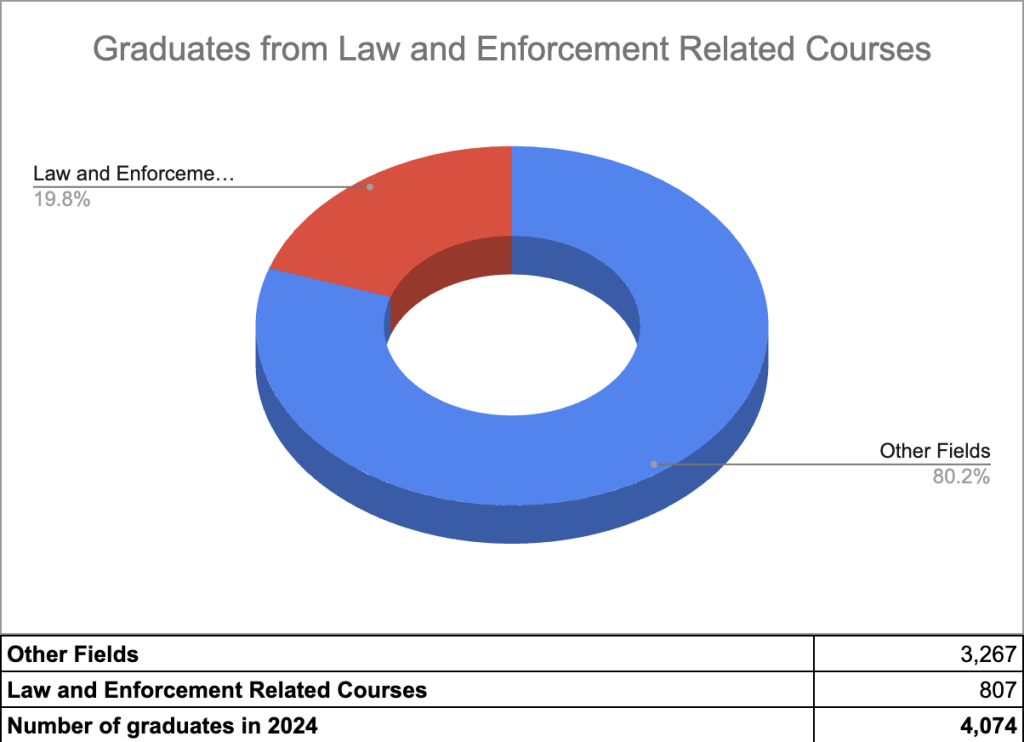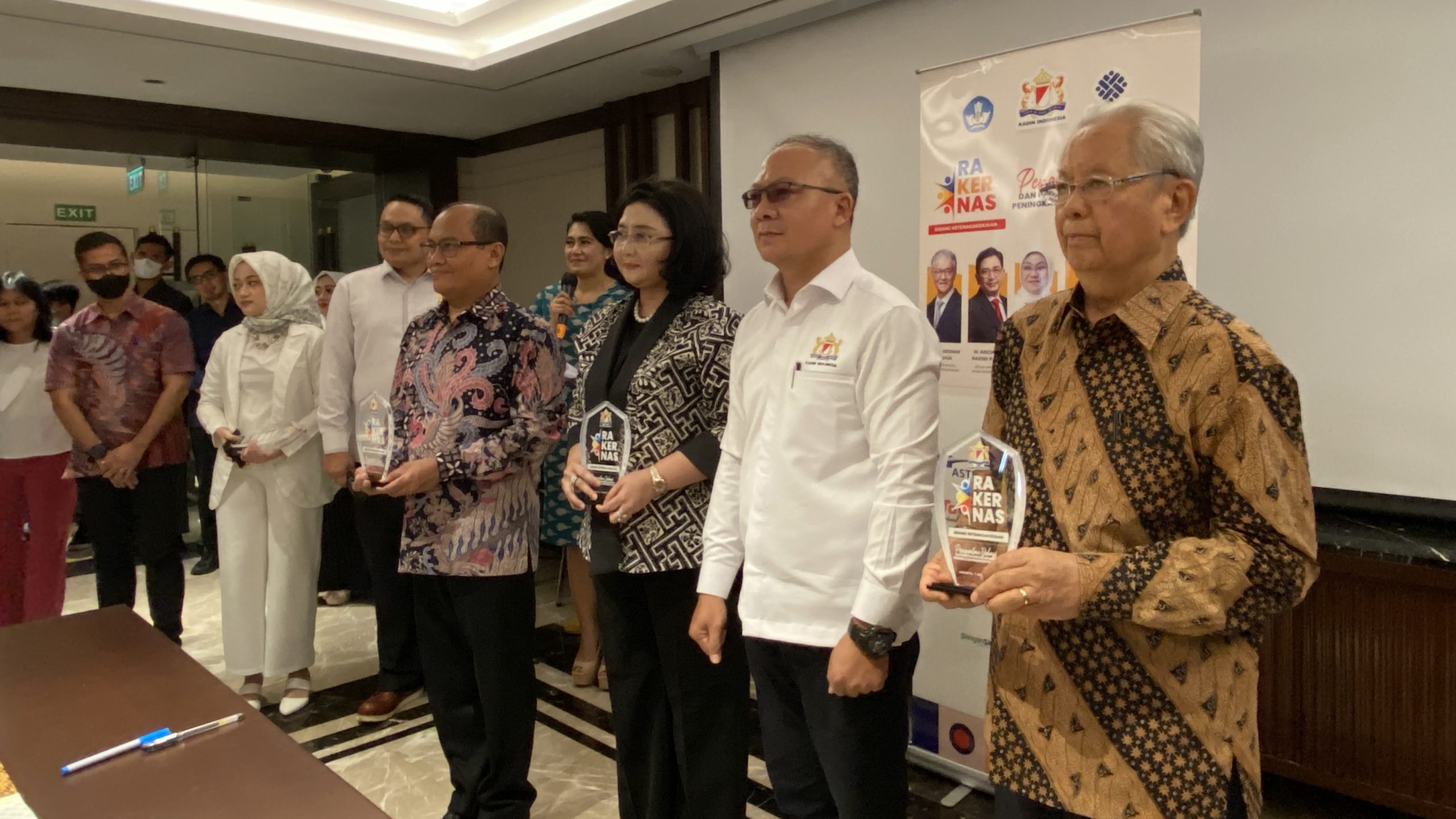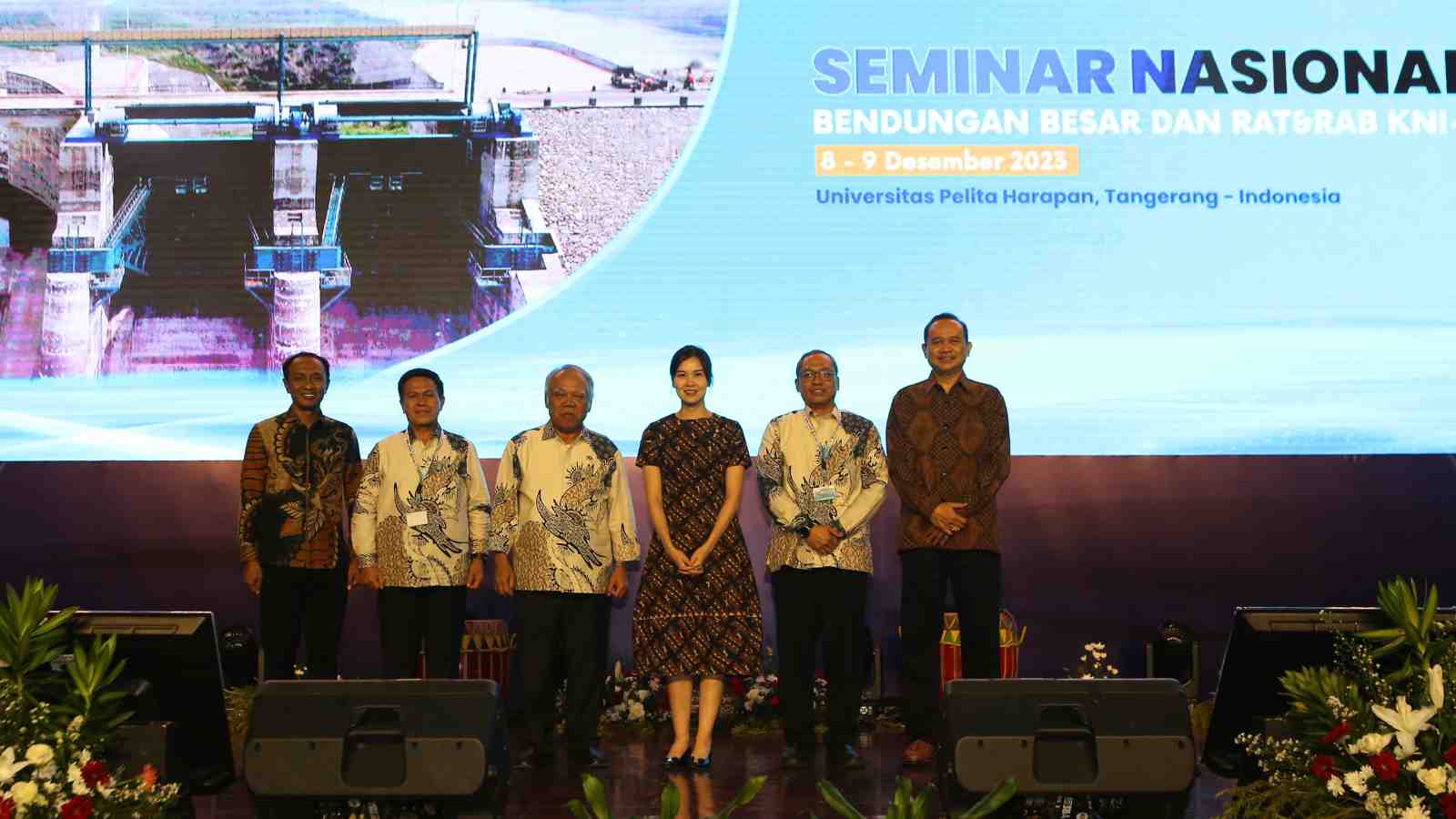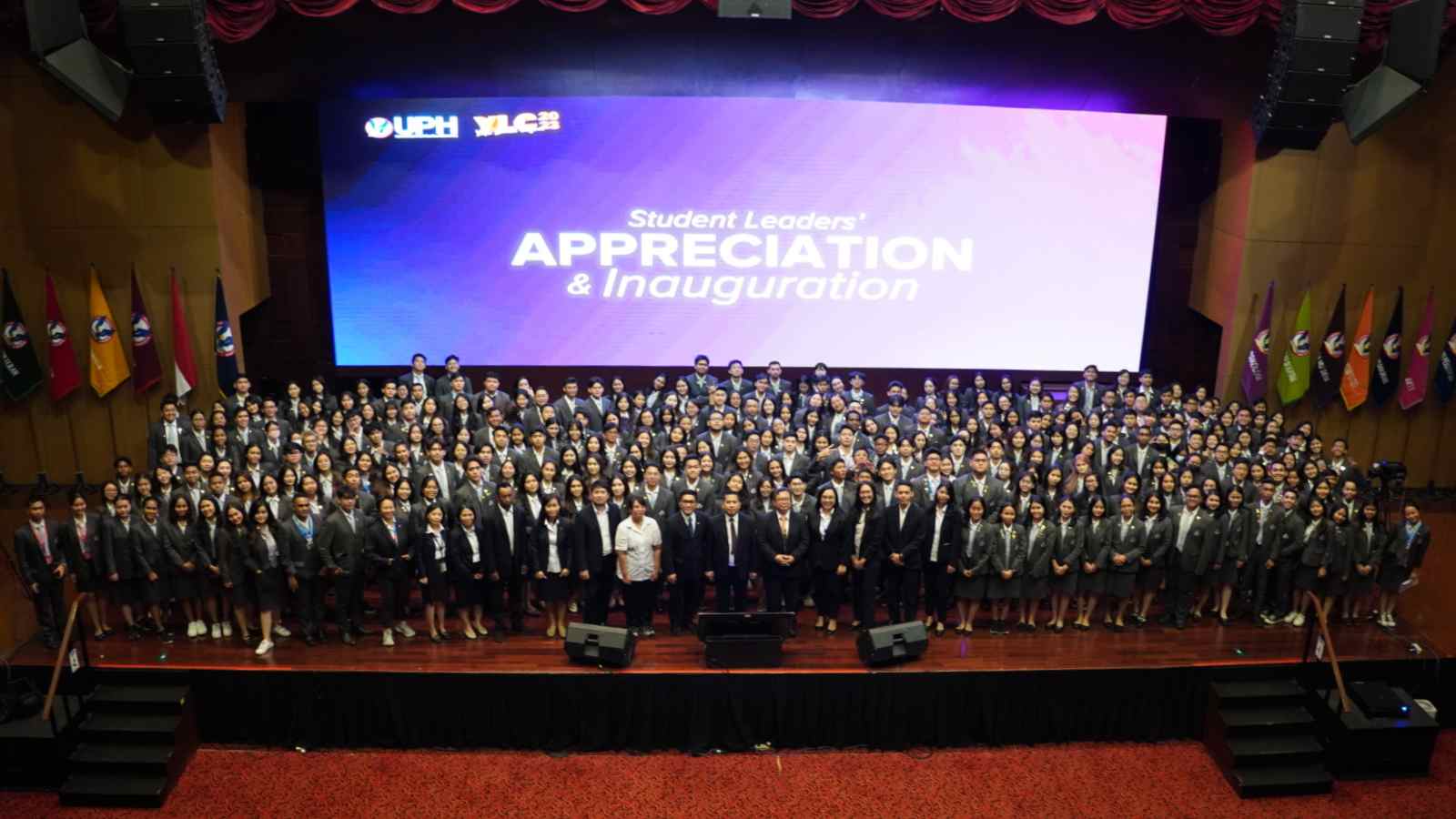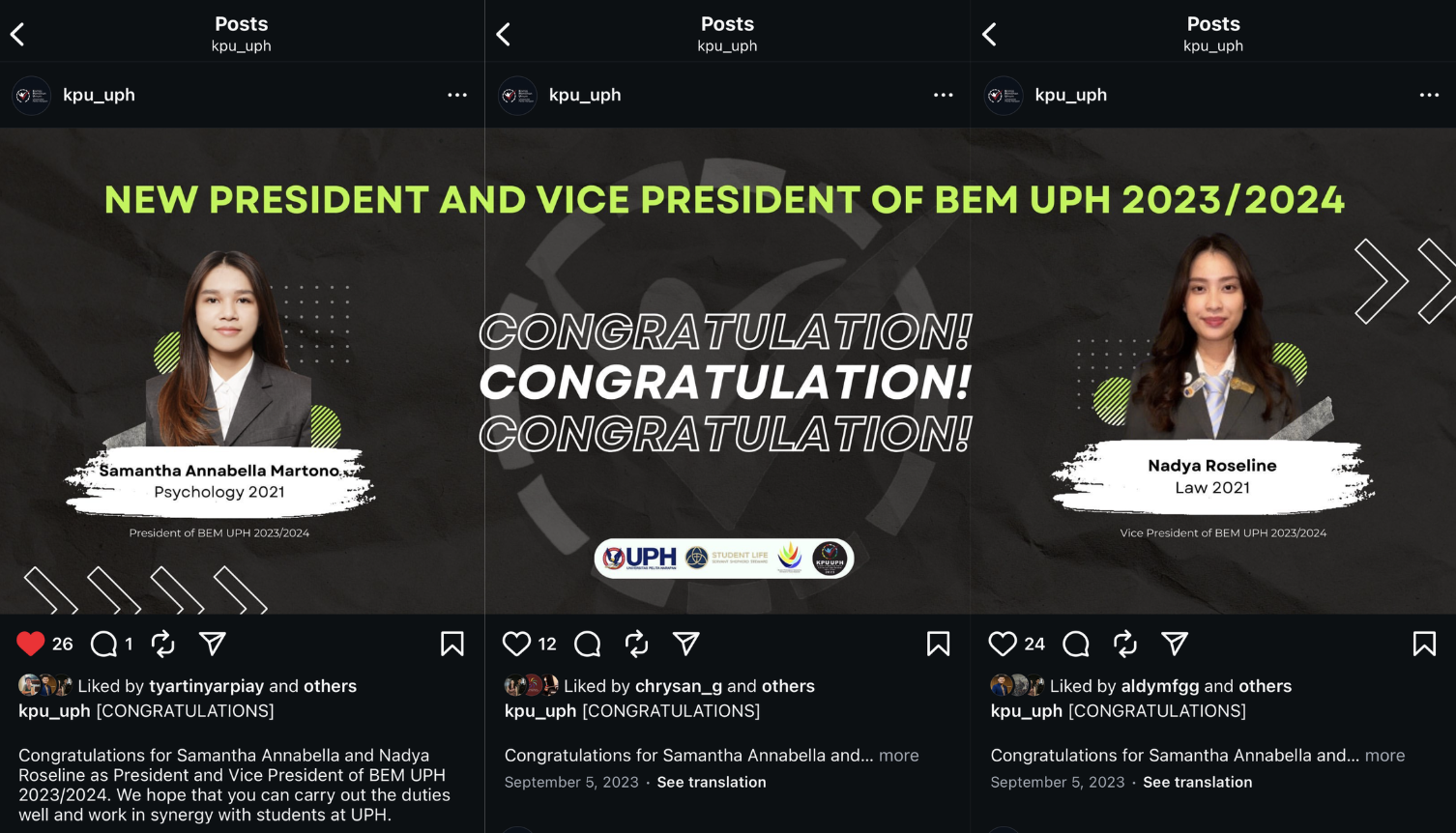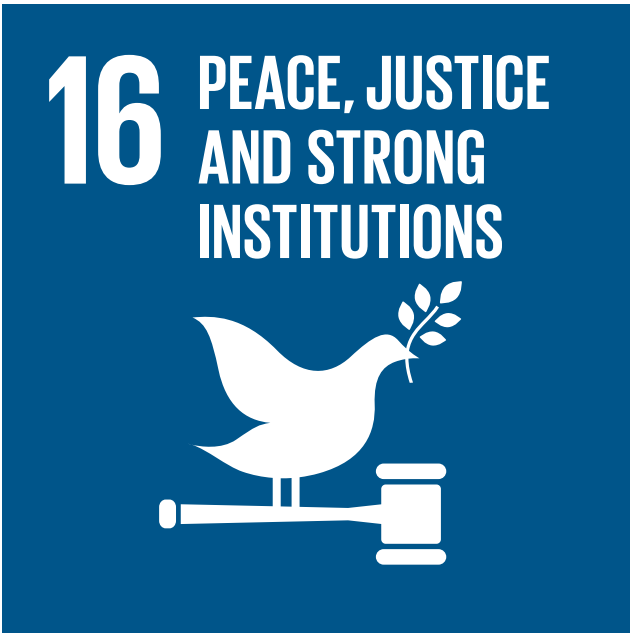
SDG 16: PEACE, JUSTICE AND STRONG INSTITUTIONS
Universitas Pelita Harapan (UPH) is dedicated to SDG 16: Peace, Justice, and Strong Institutions by fostering a culture of integrity, transparency, and good governance. The university promotes ethical practices and accountability within its operations and academic programs. UPH integrates principles of peace and justice into its curriculum, encouraging students to engage in research and projects that address social justice issues and promote civic engagement. The university also supports community initiatives that advocate for human rights and legal reforms. Through these efforts, UPH contributes to building strong institutions and advancing peaceful, just, and inclusive societies.
UPH POLICIES FOR LEGAL AND ETHICAL BEHAVIORS
University Governance Measures
Working with Government
Proportion of Graduates in Law
Elected Representation
Universitas Pelita Harapan (UPH) reinforces its commitment to democratic governance through the General Election of the Student Executive Board (BEM), organized independently by the UPH Election Commission (KPU UPH). In the 2023/2024 academic year, Samantha Annabella (Psychology 2021) and Nadya Roseline (Law 2021) were elected as President and Vice President with 959 out of 987 votes in favor. The results, announced on September 5, 2023, reflect UPH’s dedication to transparent and participatory student leadership.
Read More Here: UPH Ensures Democratic Student Representation through General Election Organized by KPU UPH

Moreover the spirit of, elected representation is not just implemented towards the undergraduate student body, but is also conducted towards the University Senate, which consists of elected representatives from the University academic and non-academic staff, which includes UPH graduates students working in the university, considering the need for their representation and contribution for this university governing body.
Students’ Union
Universitas Pelita Harapan formally recognizes independent student unions as part of its commitment to student leadership and democratic representation. The university acknowledges the Student Executive Board (Badan Eksekutif Mahasiswa – BEM) and the Student Representative Council (Majelis Perwakilan Mahasiswa – MPM) as independent, self-governed bodies that represent the collective voice of the student community. Leaders of these organizations are elected democratically through the university’s Election Commission (KPU UPH).
In addition, faculty and departmental Student Associations (HMF and HMPS) operate autonomously to address academic and organizational needs while maintaining coordination with BEM and MPM. UPH also reinforces its support for student democracy through initiatives such as the annual Student Leaders Appreciation & Inauguration, where more than 1,000 student leaders from 67 organizations were inaugurated in September 14, 2023.
Through these structures, UPH ensures that students have the freedom, institutional recognition, and support to organize independently, express their aspirations, and actively participate in decision-making processes that shape campus life.
Read More Here: UPH Recognizes and Supports Independent Student Representation Through Student Organizations
Identify and Engage with Local Stakeholders
In 2024, Universitas Pelita Harapan (UPH) enacted the Peraturan Rektor Nomor 001.001 Tahun 2024 tentang Pedoman Kerja Sama (Rector’s Regulation on Partnership Guidelines). This policy establishes a formal institutional mechanism to identify, evaluate, and engage external stakeholders, particularly at the local and regional levels. It ensures that all collaborations align with UPH’s vision, mission, and Strategic Plan 2021–2025, while supporting national higher education standards and sustainable development goals.
The policy provides clear procedures for initiating, assessing, approving, and evaluating partnerships. It highlights engagement with diverse local stakeholders, including city and district governments, hospitals, cultural and community organizations, local enterprises, and non-profit institutions. These collaborations strengthen UPH’s contribution to local development through activities such as student and faculty community service, applied research, joint workshops, and public education programs that address local needs.
Through this Rector’s Regulation, UPH ensures that partnerships are transparent, accountable, and mutually beneficial. The framework reinforces the university’s role as an active contributor to local empowerment, sustainable urban development, and the broader advancement of the United Nations Sustainable Development Goals.
Document reference: Peraturan Rektor Universitas Pelita Harapan Nomor 001.001 Tahun 2024 tentang Pedoman Kerja Sama Universitas Pelita Harapan (enacted 19 April 2024).
Participatory Bodies for Stakeholder Engagement
Universitas Pelita Harapan (UPH) ensures meaningful stakeholder participation through its dedicated body, the Centre for Teaching and Learning (CTL). This unit oversees the coordination and facilitation of stakeholder engagement processes, particularly in the areas of curriculum formulation, review, and development. CTL manages structured Focus Group Discussions (FGDs) that bring together diverse stakeholders—such as industry partners, alumni, students, parents, lecturers, and field experts—to provide input and feedback based on their expertise and local experience.
The operations of CTL are formally guided by the Rector’s Regulation No. 002 of 2020, as well as the procedural frameworks Flowchart Procedure for Conducting Focus Group Discussions (PRO08/STA03/SPMI-UPH) and Flowchart Procedure for Developing Operational Curriculum (PRO02/STA03/SPMI-UPH). Through this participatory structure, stakeholders contribute directly to shaping academic programs that impact the entire student body. Their engagement ensures that UPH’s curricula remain relevant, competency-based, and responsive to evolving community and industry needs, while reinforcing the university’s commitment to collaboration and continuous quality improvement.
Read More Here: UPH Strengthens Stakeholder Engagement Through Curriculum Review and Development in the Faculty of Education
University Principles on Corruption and Bribery
Universitas Pelita Harapan (UPH) upholds the highest standards of integrity and ethical conduct through the Addendum to Rector’s Regulation No. 006 of 2023 on the Employee Code of Ethics, which strengthens institutional measures against corruption, collusion, and nepotism (KKN). This addendum formally integrates the provisions of Law No. 31 of 1999 on the Eradication of Corruption Crimes and introduces Article 3A, outlining strict prohibitions and responsibilities for all employees.
Under this article, all UPH employees are explicitly forbidden from engaging in acts that may constitute corruption, bribery, misuse of authority, embezzlement of university assets, acceptance of illegal gratuities, or favoritism toward family members and associates outside lawful procedures. The regulation also prohibits any unauthorized internal or external collaborations that could result in personal or group gain at the expense of the university.
Any suspected violation of these principles is subject to internal investigation and may result in administrative sanctions, ethical penalties, or termination of employment in accordance with prevailing laws and institutional policies.
Through this comprehensive framework, UPH reaffirms its zero-tolerance stance toward corruption and bribery, ensuring that all governance, academic, and administrative activities are carried out transparently, accountably, and in line with national anti-corruption laws and the university’s core Christian values of honesty and moral responsibility.
Academic Freedom Policy
Universitas Pelita Harapan (UPH) upholds an Academic Freedom Policy that ensures all members of its academic community—including senior and junior lecturers—have the freedom to teach, conduct research, and engage in community service without undue interference. This policy safeguards intellectual independence, encourages open academic inquiry, and promotes an environment that fosters creativity, critical thinking, and responsible scholarship in accordance with national laws and institutional values.
Article 2 defines how academic freedom is encouraged to all academics, both junior and senior academics, without regard of their academic rank. Academic freedom both includes all the tridharma activities of the university: teaching, research, and community development.
Provide Expert Advice to Government
Universitas Pelita Harapan (UPH) actively contributes expert advice and policy guidance to local, regional, and national governments through strategic collaborations and evidence-based initiatives. At the local level, UPH has formalized a partnership with the Tangerang City Government to support city development through education, research, and community service. This collaboration enables the university to provide policy recommendations, research insights, and technical expertise, ensuring that local decision-making is informed by academic evidence and innovation.
At the national level, UPH serves as a key platform for policy dialogue and public engagement. The university hosted the “Kemenkeu Satu Banten 2024” public lecture by the Ministry of Finance, fostering discussion on national fiscal and economic strategies. Beyond this, UPH collaborates with the Indonesian Chamber of Commerce and Industry (KADIN) to align academic programs and research with national economic priorities, indirectly supporting government policy formulation and workforce development.
Through these multi-level engagements, UPH demonstrates its strong institutional commitment to bridging academia and governance, ensuring that knowledge contributes to real-world impact. Its consistent provision of research-based insights, expert consultation, and strategic partnerships establishes UPH as a trusted advisor and vital partner in advancing effective, evidence-driven public policy in Indonesia.
Read More Here: Strengthening Governance: UPH’s Multi-Level Strategic Partnership with the Government
Policy- and Lawmakers Outreach and Education
Universitas Pelita Harapan (UPH) actively provides outreach, education, and capacity-building for policymakers and practitioners through collaborative national forums on key development issues. In partnership with the Ministry of Public Works and Public Housing (PUPR) and the Indonesian National Committee on Large Dams (KNI-BB), UPH hosted the 2023 National Seminar on Large Dams, attended by over 2,000 experts, policymakers, and researchers. The event focused on climate change resilience, renewable energy, and sustainable water management, featuring more than 50 academic papers presented by 75 speakers.
This seminar served as a platform to educate and upskill policymakers on strategies for climate-resilient infrastructure, dam safety, and innovative water resource management. Through such initiatives, UPH demonstrates its strong commitment to bridging academia and government, fostering evidence-based dialogue, and contributing to Indonesia’s national policy and infrastructure goals in alignment with sustainable development and climate adaptation priorities.
Read More Here: Universitas Pelita Harapan and Public Works Ministry Host Seminar on National Water Security
Participation in Government Research
Universitas Pelita Harapan (UPH) demonstrates its active participation in government-related policy research through initiatives such as hosting the 2024 Joint Statement Forum, which brought together academics, policymakers, and regional representatives to address pressing educational challenges in Papua. By analyzing official data from the Central Statistics Agency (BPS) and proposing actionable policy recommendations—such as improving educational infrastructure, enhancing teacher welfare through the establishment of the Empowerment and Welfare Institute for Papua Pegunungan Teachers (LPK-GPP), and encouraging public-private partnerships—UPH contributes directly to evidence-based policymaking. The university’s involvement ensures that academic insights are translated into practical solutions that inform and support government efforts in achieving equitable education and national development goals.
Read More Here: Universitas Pelita Harapan Hosts Youth Forum Researching Policy Resolutions for Papuan Education Equity
Neutral Platform to Discuss Issues
Universitas Pelita Harapan (UPH) provides a neutral platform and safe space for open dialogue among stakeholders with differing political perspectives. This was demonstrated through the “DipTalk: The Russian Invasion of Ukraine—One Year On, A View from Indonesia” forum held on September 27, 2023. The event brought together H.E. Dr. Vasyl Hamianin, Ukrainian Ambassador to Indonesia, and Mr. Adri Arlan, a UPH lecturer specializing in Sino-Russian studies, for a candid discussion on the ongoing conflict.
Organized by the Foreign Policy Community of Indonesia (FPCI) Chapter UPH, the forum created a respectful environment for constructive debate and critical reflection on sensitive geopolitical issues. Moderated by Prof. Aleksius Jemadu, the dialogue encouraged balanced exchanges between contrasting viewpoints, allowing participants to engage in informed and civil discourse.
By hosting such open forums both on campus and online, UPH underscores its commitment to academic freedom, inclusivity, and neutral dialogue, fostering mutual understanding on complex international and political challenges.
Read More Here: University Forum Brings Ukrainian and Russian Perspectives into Dialogue on Conflict
